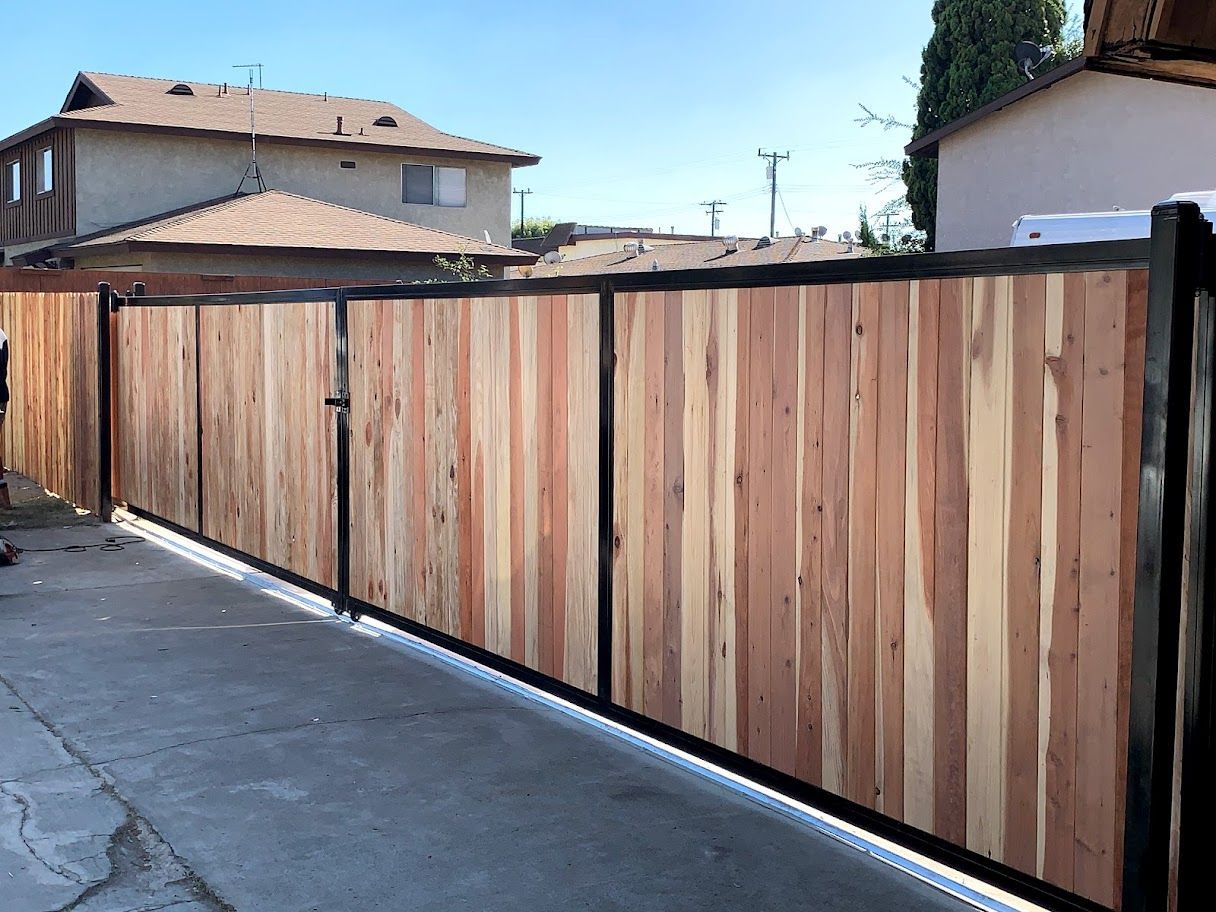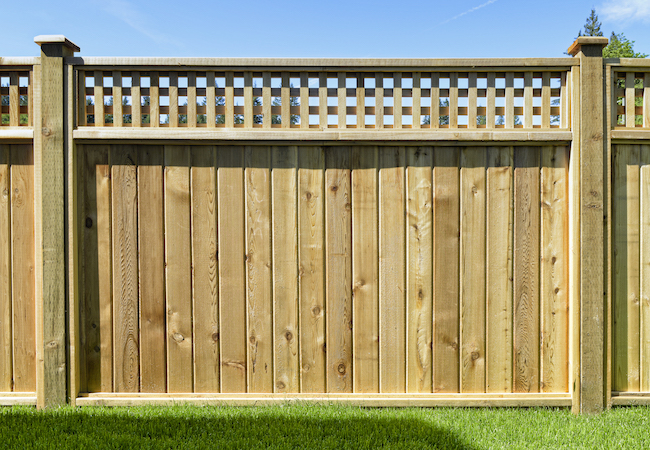All Categories
Featured
Mounting a fence on your residential or commercial property can include personal privacy, safety and security, and aesthetic charm, however before you begin digging openings and setting blog posts, it's crucial to recognize whether you require a permit. Not acquiring the needed authorizations could result in penalties or the demand to get rid of the fence.
Why Are Allows Required for Fencing Installment? Permits are very important for making certain that your fence follows local zoning laws and building regulations. These guidelines aid make sure the safety and security of your home and the bordering location. Additionally, permits stop disputes with next-door neighbors or local authorities, particularly when it concerns residential property lines, elevation restrictions, and general layout.
In a lot of cases, local authorities require authorizations to manage points like visibility at crossways or the closeness of a fencing to public spaces like roadways or sidewalks. Authorizations also aid make sure that fencings are installed properly and securely, specifically when it comes to special materials or high fencings.
Usual Sorts Of Licenses for Fence Installment. The sort of fencing you wish to install and your location will figure out which permits are needed. Here are the most typical kinds:
Building Authorization. A structure license is usually needed for fences that go beyond certain height limits (usually above 6 feet), lie near a public roadway or pathway, or are made from certain materials. Building allows make sure that the structure satisfies local building codes, including safety and security requirements.
Zoning Permit. Zoning permits are typically called for to guarantee that your fencing abides with neighborhood zoning laws. Zoning regulations can specify where a fencing can be positioned on your residential or commercial property (e.g., along property lines or ahead lawns), along with established restrictions on fence height. These legislations are made to avoid blockages that could impact web traffic safety and security or neighborhood appearances.
![]()
Problem Permit. In some locations, you may need a trouble authorization to put your fence a particular distance from home roadways, energies, or lines. Troubles are planned to preserve proper space in between structures and residential property boundaries, lowering prospective conflicts with neighbors or public infrastructure.
Homeowners Organization (HOA) Approval. You will likely need authorization from the HOA prior to mounting a fencing if your building is component of an area governed by a Homeowners Organization (HOA) HOA guidelines usually regulate the style, height, materials, and even shade of fences, making sure that they match the total aesthetic of the neighborhood.
The Process for Obtaining a Fence License. To acquire a fencing license, you typically need to call your local city or county office. The majority of areas have a structure division or planning office where you can look for authorizations. The process entails completing an application and supplying comprehensive information concerning your suggested fence, including:
Fence style (products, elevation, style) Area on the building. Building line information (for accurate placement) In many situations, a site plan showing the suggested fencing's placement will be required. You might likewise need to pay an authorization charge, which can vary based upon place and the complexity of the job.
As soon as you submit your application, the regional authorities will certainly examine it to ensure the fencing abides by local regulations. Depending upon your place, you might likewise need to permit or set up an inspection for a residential or commercial property study.
When Do You Not Required an Authorization? In some situations, a license might not be required. Typically, you may not need an authorization if:
![]()
The fence is under a particular height (frequently 3-4 feet for front backyards) You're changing an existing fencing with the same type and elevation. The fencing is momentary (such as a yard fence) Nevertheless, it's always a great concept to talk to your local building or zoning division to confirm the demands, as guidelines can differ.
Consequences of Not Getting an Authorization. In some instances, you may need to re-install the fencing according to code, which could be costly and taxing. Furthermore, not following the correct permitting process can produce troubles with neighbors, especially if your fencing expands beyond your building line or does not fulfill height or design needs.
Final thought. Before setting up a fence, make certain you recognize the neighborhood laws and whether you need a license. It is essential to talk to your regional building or zoning workplace, along with your HOA if appropriate, to understand what's called for. By getting the appropriate licenses, you'll guarantee that your fence is lawfully compliant, safe, and devoid of future difficulties. Taking this additional action will certainly conserve you time and money in the future while providing satisfaction that your task is on the right track.
Why Are Allows Required for Fencing Installment? Permits are very important for making certain that your fence follows local zoning laws and building regulations. These guidelines aid make sure the safety and security of your home and the bordering location. Additionally, permits stop disputes with next-door neighbors or local authorities, particularly when it concerns residential property lines, elevation restrictions, and general layout.
In a lot of cases, local authorities require authorizations to manage points like visibility at crossways or the closeness of a fencing to public spaces like roadways or sidewalks. Authorizations also aid make sure that fencings are installed properly and securely, specifically when it comes to special materials or high fencings.
Usual Sorts Of Licenses for Fence Installment. The sort of fencing you wish to install and your location will figure out which permits are needed. Here are the most typical kinds:
Building Authorization. A structure license is usually needed for fences that go beyond certain height limits (usually above 6 feet), lie near a public roadway or pathway, or are made from certain materials. Building allows make sure that the structure satisfies local building codes, including safety and security requirements.
Zoning Permit. Zoning permits are typically called for to guarantee that your fencing abides with neighborhood zoning laws. Zoning regulations can specify where a fencing can be positioned on your residential or commercial property (e.g., along property lines or ahead lawns), along with established restrictions on fence height. These legislations are made to avoid blockages that could impact web traffic safety and security or neighborhood appearances.

Problem Permit. In some locations, you may need a trouble authorization to put your fence a particular distance from home roadways, energies, or lines. Troubles are planned to preserve proper space in between structures and residential property boundaries, lowering prospective conflicts with neighbors or public infrastructure.
Homeowners Organization (HOA) Approval. You will likely need authorization from the HOA prior to mounting a fencing if your building is component of an area governed by a Homeowners Organization (HOA) HOA guidelines usually regulate the style, height, materials, and even shade of fences, making sure that they match the total aesthetic of the neighborhood.
The Process for Obtaining a Fence License. To acquire a fencing license, you typically need to call your local city or county office. The majority of areas have a structure division or planning office where you can look for authorizations. The process entails completing an application and supplying comprehensive information concerning your suggested fence, including:
Fence style (products, elevation, style) Area on the building. Building line information (for accurate placement) In many situations, a site plan showing the suggested fencing's placement will be required. You might likewise need to pay an authorization charge, which can vary based upon place and the complexity of the job.
As soon as you submit your application, the regional authorities will certainly examine it to ensure the fencing abides by local regulations. Depending upon your place, you might likewise need to permit or set up an inspection for a residential or commercial property study.
When Do You Not Required an Authorization? In some situations, a license might not be required. Typically, you may not need an authorization if:

The fence is under a particular height (frequently 3-4 feet for front backyards) You're changing an existing fencing with the same type and elevation. The fencing is momentary (such as a yard fence) Nevertheless, it's always a great concept to talk to your local building or zoning division to confirm the demands, as guidelines can differ.
Consequences of Not Getting an Authorization. In some instances, you may need to re-install the fencing according to code, which could be costly and taxing. Furthermore, not following the correct permitting process can produce troubles with neighbors, especially if your fencing expands beyond your building line or does not fulfill height or design needs.
Final thought. Before setting up a fence, make certain you recognize the neighborhood laws and whether you need a license. It is essential to talk to your regional building or zoning workplace, along with your HOA if appropriate, to understand what's called for. By getting the appropriate licenses, you'll guarantee that your fence is lawfully compliant, safe, and devoid of future difficulties. Taking this additional action will certainly conserve you time and money in the future while providing satisfaction that your task is on the right track.
Latest Posts
Boost Any Kind Of Area with Stylish, High-Quality Location Rugs
Published Apr 18, 25
1 min read
Experience the Montclare Difference - Expert Auto Service
Published Apr 18, 25
2 min read
Unlock Exclusive Discounts with WyHy's Love My Credit score Union Rewards
Published Apr 18, 25
1 min read
More
Latest Posts
Boost Any Kind Of Area with Stylish, High-Quality Location Rugs
Published Apr 18, 25
1 min read
Experience the Montclare Difference - Expert Auto Service
Published Apr 18, 25
2 min read
Unlock Exclusive Discounts with WyHy's Love My Credit score Union Rewards
Published Apr 18, 25
1 min read